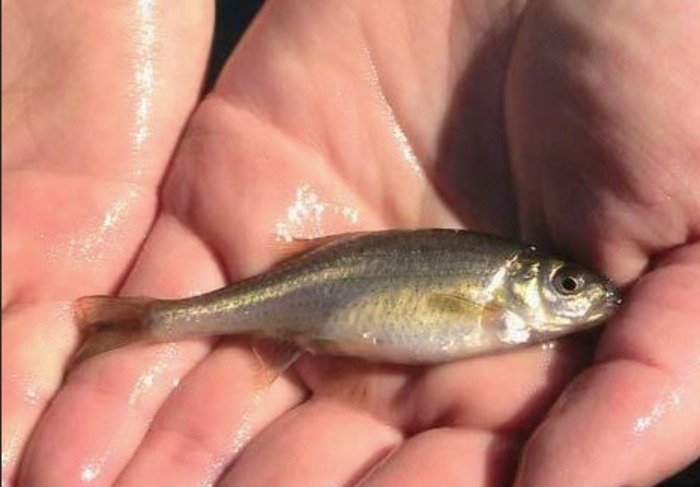Oregon chub. Credit: U.S. FWS
PORTLAND, Ore., Feb. 4 (UPI) -- U.S. officials propose taking the Oregon chub off the list of Endangered and Threatened Wildlife, which would make it the first fish de-listed due to recovery.
The proposal Tuesday by the U.S. Fish and Wildlife Service is the culmination of a 20-year partnership with the Oregon Department of Fish and Wildlife, the Army Corps of Engineers and private landowners.
"For two decades, this extraordinary partnership that includes federal and state agencies, landowners and others stakeholders has served as a model of how we can use the Endangered Species Act as a tool to bring a species back from the brink of extinction," Secretary of the Interior Sally Jewell said. "The success we have had with the Oregon chub reinforces that, working together, we can recover species that currently are threatened or endangered."
The Oregon chub, a small minnow found only in the Willamette River Basin in floodplain habitats with little or no water flow, was listed as endangered in 1993 and reclassified as threatened in 2010. Just eight known populations with fewer than 1,000 fish were known to exist at the time of listing. Today, the population stands at more than 150,000 fish at 80 locations with a diverse range of habitats.
The primary threats to the chub -- loss of habitat and predation by nonnative fishes -- have been lessened over the last 20 years through collaborative partnerships to restore and acquire habitat, promote natural water flows, and conduct education and outreach to local landowners and residents, officials said.
"I couldn't be prouder that the first fish species proposed to be de-listed under the Endangered Species Act is an Oregon native," Oregon Gov. John Kitzhaber said. "This is a huge compliment to Oregonians and our history of conservation leadership, and an extraordinary testament to the power of collaboration between landowners and local, state, and federal agency employees."















